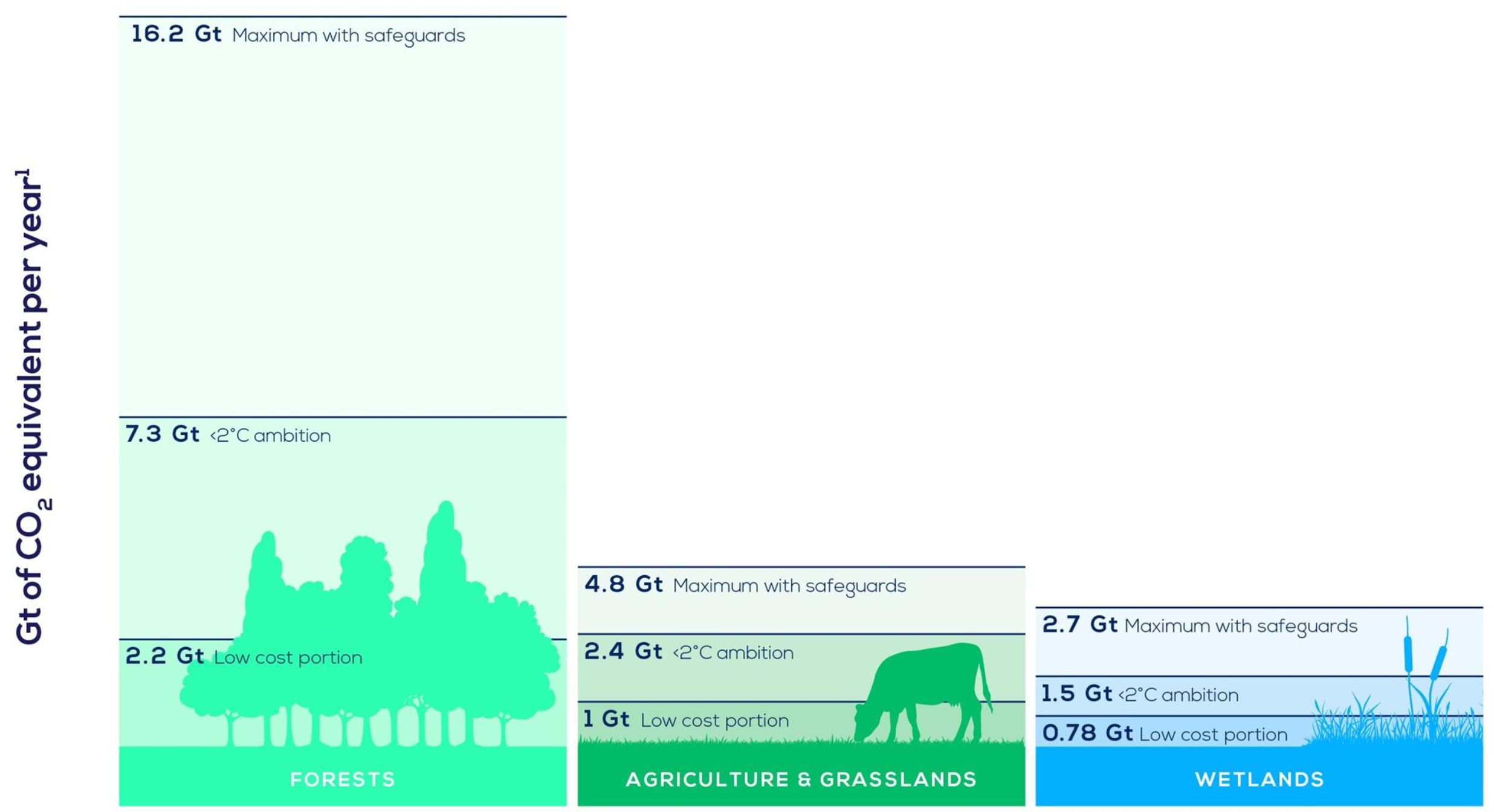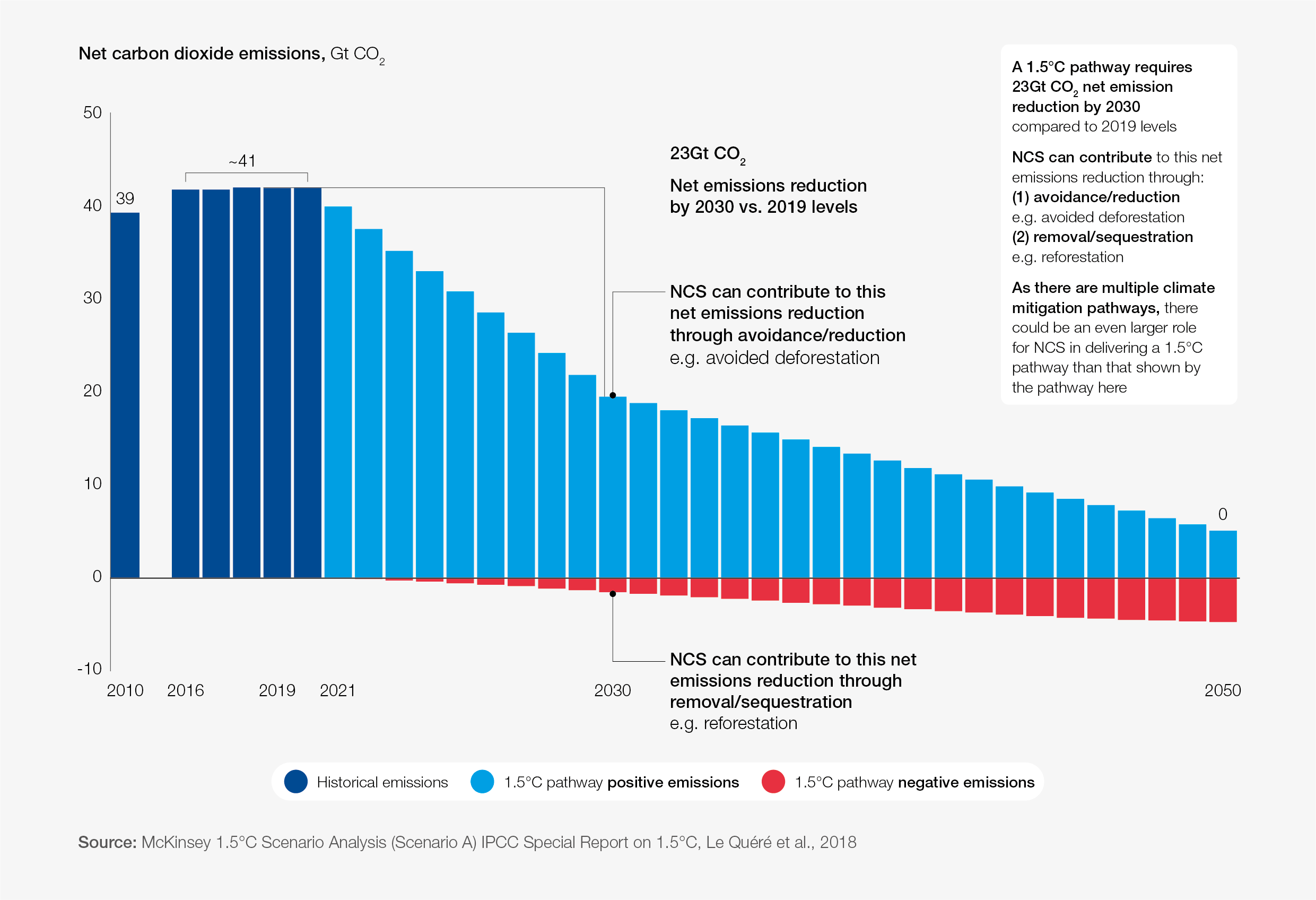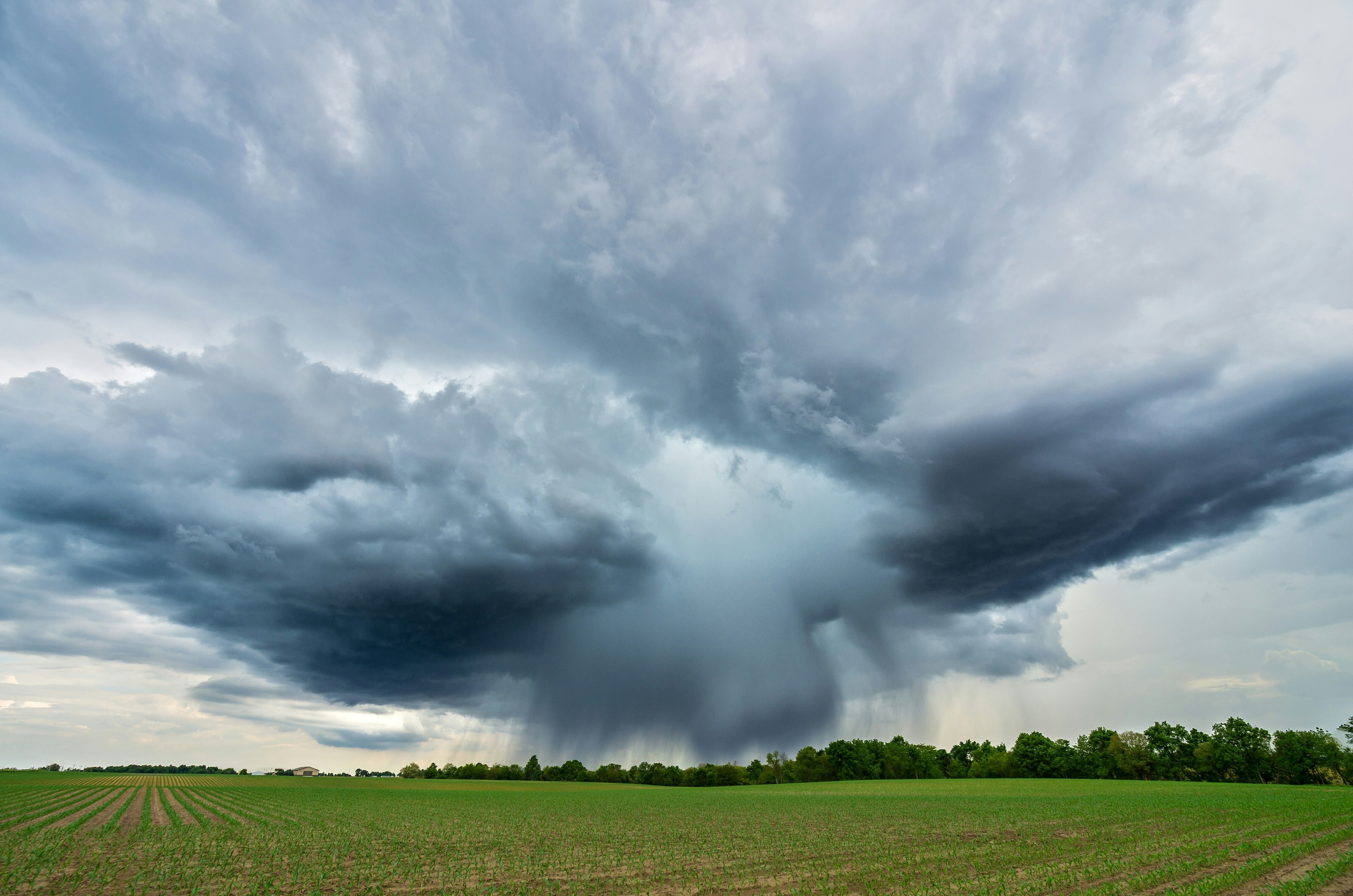Science for sustainable development: how recent research could help us meet climate goals

United in science ... a new report points to the role of climate sciences in meeting the Sustainable Development Goals.
Image: Unsplash/NOAA
Stay up to date:
Science
- To get on track with the United Nation’s 2030 sustainable development goals, we need to cut emissions by 45%.
- But a new report by the UN and WMO points to the role of the latest weather, climate and water science in helping to drive progress.
- The World Economic Forum’s Centre for Nature and Climate highlights the need to turn scientific evidence into practical action.
We're now at the half-way point on the road to achieving the United Nation’s 2030 Agenda for Sustainable Development - but the world is “woefully off track”, according to the organization’s Secretary-General, António Guterres.
Rapid changes to oceans, atmosphere and biosphere are leading to more extreme weather events, damaging both nature and populations, as well as the chances of reaching the UN’s Sustainable Development Goals (SDGs).
To keep global warming below 1.5°C (above pre-industrial levels), we must reduce greenhouse gas emissions by 45% by 2030, and CO2 emissions must be close to net zero by 2050. So how do we ramp up progress on climate targets and SDGs?
According to United in Science, a new joint report from the UN and the World Meteorological Organization (WMO), science holds the key - and specifically the latest developments in weather, climate and water sciences.
But so, too, does awareness: which is why the UN adopted a resolution this year making 2024-2033 the International Decade of Sciences for Sustainable Development.
Here’s how science can help meet climate goals and SDGs alike.
Science for climate action and SDGs
The United in Science 2023 report points out that science can solve immediate practical problems while also helping with long-term goals. Climate and water data, for example, can help in the creation of early warning systems, which can give valuable time to prepare for adverse weather events, reducing their impact, as well as reducing poverty, the UN’s first SDG.
In addition, scientific weather predictions can help farmers to increase food yields, which in turn moves the world closer to zero hunger, SDG 2.
The United in Science report shows how climate- and water-related sciences can accelerate numerous SDGs including food and water security, cleaner energy and better health, as well as more sustainable oceans and resilient cities.
“Groundbreaking scientific and technological advances, such as high-resolution climate modelling, AI and nowcasting, can catalyse transformation in support of the SDGs,” says Professor Petteri Taalas, Secretary-General of the WMO.
But the problem, he adds, is enabling the full utilization of these technologies around the world. Here are the three key barriers and ways to overcome them.
Gaps in data
Gaps in global surface-based data exist because there are not enough observations being made in some parts of the world - and also, data exchange and access are limited. This has a significant impact on the quality of weather, climate and water-related services at local, regional and global levels.
The lack of data, especially in lower-income countries, leads to knowledge gaps and ineffective policy-making, the report says, which limits progress towards the SDGs.
Failure to reach local communities
Reaching local communities with weather, climate and water information is challenging. Making the information understandable, affordable, applicable and in real-time is difficult. Integrating local, contextual and indigenous knowledge is also a challenge, but one worth tackling, as not effectively engaging with local stakeholders and incorporating their knowledge limits the effectiveness of science.
Lack of scientific capacity
Sometimes the problem is simply needing more scientific resources – whether that be scientists, laboratories or budgets for research or equipment – which prevents many countries from effectively using climate sciences.
Accept our marketing cookies to access this content.
These cookies are currently disabled in your browser.
How to level up the scientific community
Awareness is central to mobilizing more investment, the report’s authors say. In August 2023, the UN adopted a resolution making 2024-2033 the International Decade of Sciences for Sustainable Development. And while progress has been made in the fields of scientific research, wider action is needed too.
“Unprecedented advances in weather-, climate- and water-related sciences and services remain underutilized in support of sustainable development but must be enhanced, accelerated and scaled up to support achievement of the SDGs," write the authors. "We have the solutions to achieve the SDGs by 2030 – now is the time to mobilize the scientific community to supercharge SDG implementation.”
The report recommends the following ways to supercharge the SDGs:
- Close the gap in weather, climate and hydrological observations and data
- Advance research and expand access to science, technology and innovation
- Strengthen scientific capacity and skills through education and training
- Embrace local, contextual and indigenous knowledge
- Unite diverse stakeholders to boost the impact of science.
What is the World Economic Forum doing on natural climate solutions?
Speeding up action on climate change
There are still significant challenges, particularly on the data quality, transmission, resolution and affordability; and collaboration is “essential” to addressing them, the report concludes.
The World Economic Forum Centre for Nature and Climate is helping science to drive credible climate action, enabling more connections and partnerships to boost its impact.
One example of such collaboration, is the UN’s Early Warning for All project (Ew4ALL), co-led by the WMO, which aims to ensure everyone is protected against hazardous conditions through early warning systems by the end of 2027.
Accept our marketing cookies to access this content.
These cookies are currently disabled in your browser.
Don't miss any update on this topic
Create a free account and access your personalized content collection with our latest publications and analyses.
License and Republishing
World Economic Forum articles may be republished in accordance with the Creative Commons Attribution-NonCommercial-NoDerivatives 4.0 International Public License, and in accordance with our Terms of Use.
The views expressed in this article are those of the author alone and not the World Economic Forum.
Related topics:
Forum Stories newsletter
Bringing you weekly curated insights and analysis on the global issues that matter.
More on Sustainable DevelopmentSee all
Elizabeth Henderson
September 16, 2025
Manoj Mehta
September 15, 2025
Lindsey Hall
September 15, 2025
Naoko Tochibayashi
September 15, 2025
Vanina Farber
September 12, 2025










